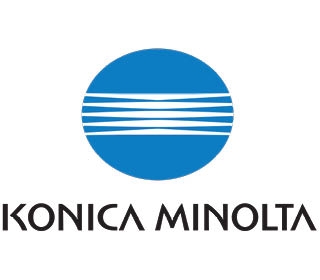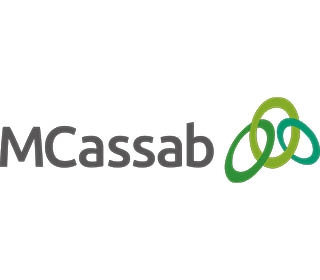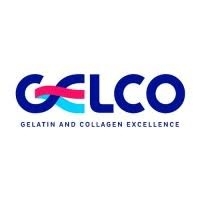Cargill’s “30 percent or higher” sugar reduction strategy leads to US$5m Belgium investment
In a push to expand its sugar reduction capabilities in chocolate, Cargill has invested US$5 million in its Mouscron, Belgium facility. The investment will fund the development of a wide range of sugar replacers and the necessary dosing systems. These will allow Cargill to reduce sugar levels gradually, or up to 30 percent or higher. The facility focuses on “bespoke and innovative sugar reduced chocolate recipes” that meet the increased consumer demand for sugar reduced chocolate products, which is inspiring ample innovation across the dessert and confectionery spaces this year.
“Cargill created a unique sugar-reduced chocolate recipe using an optimized blend of sugar replacers, while still managing to get all the other elements like taste and texture right. Our new, bespoke sugar-reduced chocolate capabilities can produce a creamy, rich, indulgent chocolate taste with just the right level of sweetness,” says Inge Demeyere, Managing Director of Cargill’s chocolate activities in Europe.
Cargill’s 2019 study on global food and beverage trends reveals that sugar is the most avoided ingredient in food products and that 54 percent of consumers are willing to pay more for chocolate with no or reduced sugar. The company’s development of its Mouscron site is dubbed as the latest in a long line of Belgian chocolate investments, which are focused on anticipating and responding to the demands of the industrial and gourmet segments
Cargill’s Mouscron, Belgium, facility.“As more consumers look for reduced sugar chocolate products, our customers are looking for new chocolate recipes that combine an indulgent sensory experience with lower sugar levels,” adds Demeyere.
Cargill’s “30 percent or higher” sugar reductions strategy follows similar innovations by Strauss Group and Nestlé. Earlier this month, Strauss Group unveiled a refined sweet milk chocolate bar made with 30 percent less sugar using extracts of tiger nut tubers. In March 2018, Nestlé debuted a “breakthrough” technology that “restructures” sugar, lowering it by the same percentage. The company has most recently created a unique new chocolate made entirely from the cocoa fruit, using only the beans and pulp as ingredients.
Recently, Cargill acquired Smet, a Belgian-based supplier specialized in chocolate and sweets decorations. With the acquisition, Cargill was able to broaden its product portfolio and services to gourmet customers such as artisans and chocolatiers, bakery, hospitality businesses and food service industries.
Globally recognized for its premium chocolate production, Belgium has been a focal point of Cargill’s cocoa and chocolate business for many years.
Cargill’s sugar reduction strategies
Within the sphere of sugar reduction, Cargill specializes in several sweetness-enhancing solutions marketed with calorie-free and natural claims.
Utilizing the saccharine properties of the stevia plant, the company has released three “high performance” sweetening agents for food and beverage applications: EverSweet Stevia Sweetener, Truvia Stevea Leaf Extract and ViaTech Stevia Leaf Extract.
Further leveraging consumer interest in natural and functional ingredients, Cargill’s Oliggo-Fiber Chicory Root Fiber (inulin) is marketed as an ingredient with properties “beyond simple fiber fortification.” The ingredient enables food and beverage manufacturers to respond to consumer demands for clean label and sugar
Chicory root is increasingly touted as a highly functional natural sweetener.reduced products, which do not compromise taste and texture.
Similarly, Cargill supplies Maltidex Malitol, a sugar-free sweetener produced by hydrogenation of the disaccharide maltose. Maltitol is available as a crystalline powder and as maltitol syrup, which, besides maltitol, contains a narrowly controlled range of hydrogenated oligo-and polysaccharides. Besides maltitol powder, Cargill offers a range of tailor-made maltitol syrups with varying maltitol content to suit the desired application.
Industry focus on sugar reduction
Reformulation of products without sacrificing flavor, naturalness, sensory attributes or indulgence factor remains a key target for companies. The trend is further propelled by sugar taxes that have come into force in different markets over the last few years.
In June, Israeli food-tech company DouxMatok secured US$22 million in a series B funding round for its sugar reduction solution that enables a reduction of “sugar with sugar.” By increasing the efficiency of sugar delivery to the tongue’s sweet taste receptors, the technology allows food products to be made with 40 percent less sugar without compromising taste, mouthfeel or texture.
Last April, Layn, a producer of plant-based sweeteners, flavors and botanicals, launched Lovia, a solution that integrates monk fruit mogrosides with specific steviol glycosides to enable more profound sugar reduction with a sugar-like taste.
In the same month, Israel-based Gat Foods also unveiled Fruitlift – an innovative fruit-based formulation containing natural plant fibers that is available in a wide range of flavors. The base additive can be used as a natural fruity flavoring or blended neutrally into a cereal brand’s signature flavor.































